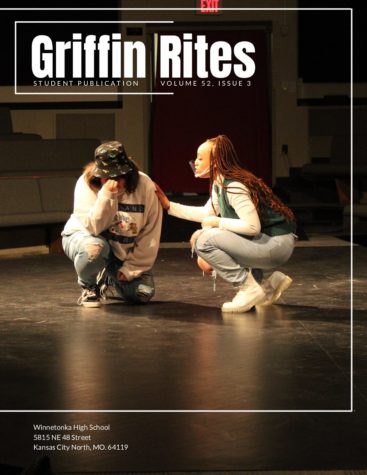In representation we trust
Congressional makeup should be more representative of America’s population
January 17, 2018
 Gage Rabideaux
Gage Rabideaux
In order to fairly and accurately serve and represent American citizens, the age, ethnic, gender and religious makeup of Congress should be more representative of the overall population of the United States.
It is a common expression that the government is run by old men, but this expression actually holds truth when referring to the majority of Congress. The average age of members of the House of Representatives is 57.8 years, and the average age of members of the Senate is 61.8 years, according to the Congressional Research Service. This is compared to citizens, who have a median age of 38.1 years, according to the Central Intelligence Agency. While it should not be said that older citizens are ignorant to current problems, the problems of a younger generation are different than those that have faced older generations. As such, age disparities can make it hard for Congressmen to accurately represent the current political climate.
Additionally, while 81 percent of Congress is Caucasian, according to the Pew Research center Caucasians make up only 62 percent of America’s population. This means that the 38 percent of America that is non-white is dramatically underrepresented in congress. And while the U.S. Census reports that 51.4 percent of the national population is female, just 19 percent of congressional lawmakers are women according to U.S. News and World Report. If you take females out of ethnic statistics then it is revealed that, while only 38 percent of American citizens are white males, 74 percent of Congress are white males. Nearly three-fourths Congress representing just 38 percent of the nation is unnerving, since a representative cannot constitute the best decisions for nationwide minorities if he or she has never had first-hand experience as that minority.
Not only is the majority of Congress by far white and male, but it is also overwhelmingly Christian. In the 115th Congress, 90.7 percent of lawmakers are Christian, but as of 2016, the total Christian population of the United States was 70.6 percent according to the Pew Research Center. Although Christianity is the largest religion in the United States, the 29.4 percent of the national population that is not Christian still correlates to nearly 90 million people, a large number of citizens to remain underrepresented in Congress.
The knowledge of those who have learned from experience is just as powerful if not more powerful than the knowledge of those who have learned from being educated. And whether intentional or unintentional, this majority of old, white men act as a wall – preventing minorities from voicing their opinions. Being an African-American will teach a person things about the United States that a Caucasian person will never understand.
If all American citizens are to be able to truly trust that their views are being represented by members of Congress, then their knowledge needs to be politically represented in order for the government to be a reflection of its people and for the government to correctly discern what is best for all its people, not just the majority.

















































